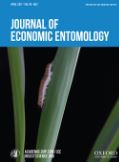Liriomyza huidobrensis (Blanchard) is an economically important and highly polyphagous worldwide pest. To establish a temperature-dependent phenology model, essential for understanding the development and growth of the pest population under a variety of climates and as part of a pest risk analysis, L. huidobrensis life-table data were collected under laboratory conditions at seven constant temperatures on its host faba bean (Vicia faba L.). Several nonlinear equations were fitted to each life stage to model the temperature-dependent population growth and species life history and finally compile an overall temperature-dependent pest phenology model using the Insect Life Cycle Modeling (ILCYM) software. Liriomyza huidobrensis completed development from egg to adult in all temperatures evaluated, except at 32 °C, which was lethal to pupae. Eggs did not develop at 35 °C. Mean development time of all immature stages decreased with increasing temperature. Nonlinear models predicted optimal temperature for immature survival between 20–25 °C (32–38% mortality of all immature stages). Life-table parameters simulated at constant temperatures indicated that L. huidobrensis develops within the range of 12–28 °C. Simulated life-table for predicting the population dynamics of L. huidobrensis under two contrasting environments showed that lowland temperatures at the coast of Peru (250 m.a.s.l.) presented better conditions for a potential population increase than highland (3,400 m.a.s.l.) conditions. The presented model linked with Geographic Information Systems will allow pest risk assessments in different environmental regions to support the regulation of pest movement to prevent pest entry into not-yet invaded regions as well as to implement effective management strategies.
A temperature-dependent phenology model for Liriomyza huidobrensis (diptera: Agromyzidae).
Citation: Mujica, N.; Sporleder, M.; Carhuapoma, P.; Kroschel, J. 2017. A temperature-dependent phenology model for Liriomyza huidobrensis (diptera: Agromyzidae). Journal of Economic Entomology. (USA). ISSN 0022-0493. 12 p.
2017-05-23
CLIMATE CHANGE, CROP PROTECTION, POTATO AGRI-FOOD SYSTEMS, POTATOES
South America
Peru
journal_article

